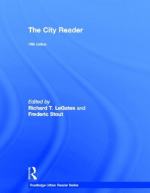|
This section contains 904 words (approx. 3 pages at 400 words per page) |

|
Part IV: Urban Politics, Governance, and Economics Summary and Analysis
John Mollenkopf's "How to Study Urban Political Power" (1992) is an analysis of urban politics. Mollenkopf questions whether they are determined by the economic and social context, or by other factors. He writes that there have been two groups of researchers studying city politics: the pluralists, and the structuralists, who have always struggled between one another. The author looks at both sides and proposes a synthesis. The structuralists, for example, concede that economic forces come into play, but that urban political theory also needs to draw on theories of the state, or "polity-centered" theories. Pluralists, on the other hand, reject economic and social controls and see politics as the study of systematic power, where a marketplace becomes a competition for residents.
In "Regime Theory and Urban Politics" (1995), Gerry Stoker summarizes...
(read more from the Part IV: Urban Politics, Governance, and Economics Summary)
|
This section contains 904 words (approx. 3 pages at 400 words per page) |

|




